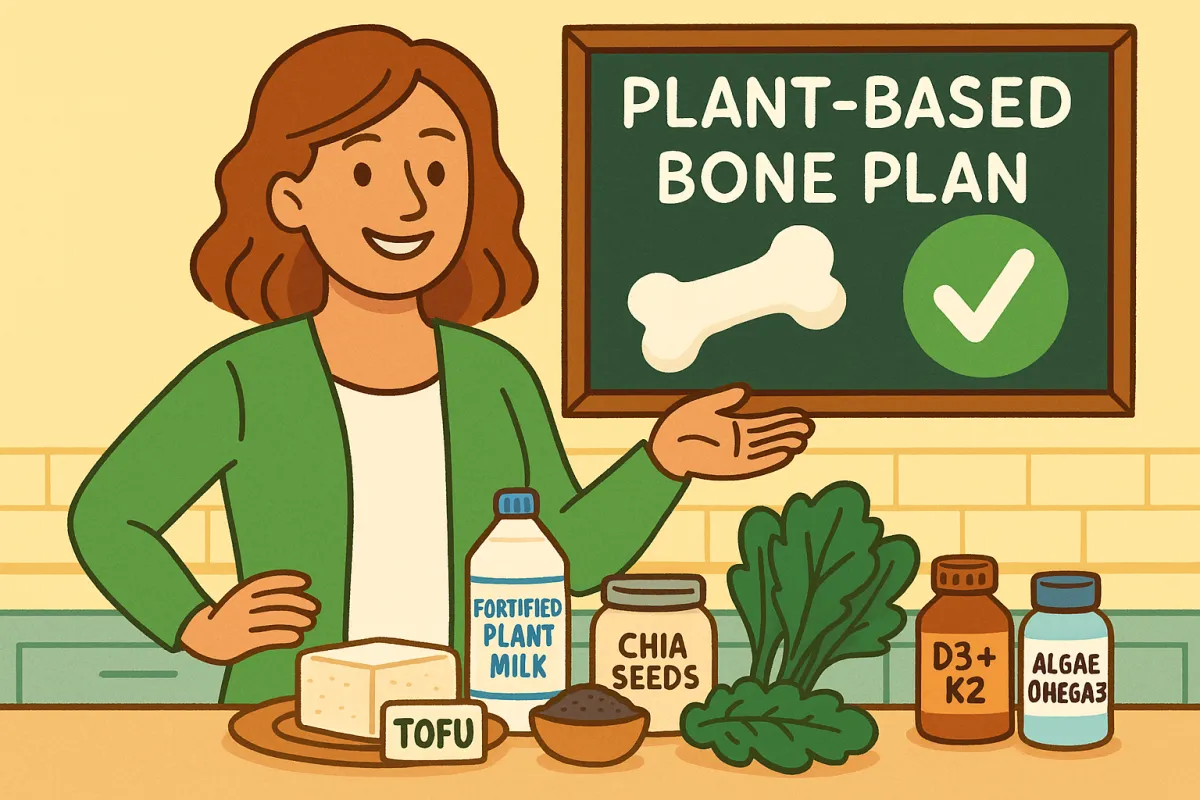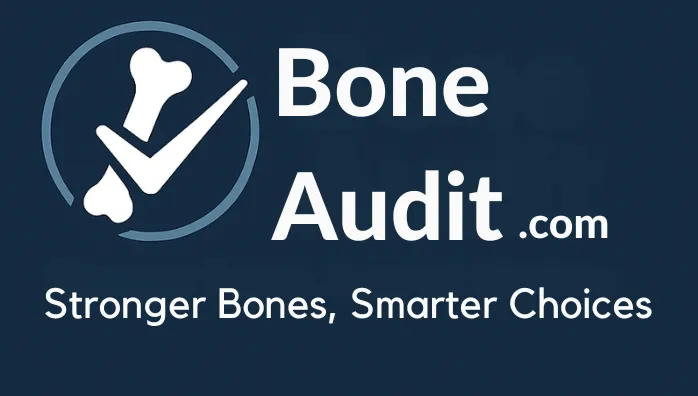
Can a Vegan or Vegetarian Diet Support Strong Bones?
Yes — but it takes planning.
Plant-based diets can absolutely support good bone health, but they come with a few extra challenges. That’s not a judgment — it’s just about knowing what your bones need and how to meet those needs through food and supplements.
Let’s break it down.
Why Bone Health Can Be Tricky on a Plant-Based Diet
People following vegan or vegetarian diets may be at slightly higher risk for low bone density. This isn’t because the diet is “bad,” but because it’s easier to miss a few key nutrients — especially over the long term.
Common nutrient gaps include:
Protein
Calcium
Vitamin D3
Vitamin K2
Vitamin B12
Iron
Zinc
Omega-3s (EPA + DHA)
Many of these are harder to get from plant sources alone — or not as well absorbed.
What the Research Shows
🧪 A 2020 meta-analysis in Osteoporosis International found that vegans had lower bone mineral density at both the hip and spine compared to omnivores.
🧪 Vegetarians also showed slightly lower density, though less pronounced than vegans.¹
That doesn’t mean a plant-based diet can’t work. But it does mean you need to actively include the right nutrients to support your bones — especially protein, calcium, D3, K2, and omega-3s.
Protein: The Structural Framework
Protein makes up about 50% of bone by volume, forming the collagen “scaffold” that calcium attaches to.
While many plant foods contain protein, they may lack one or more essential amino acids, unless they’re carefully combined or supplemented.
✅ Include:
Lentils, beans, chickpeas
Tofu, tempeh, edamame
Quinoa, buckwheat
Protein powders with complete amino acid profiles
Calcium: Still Essential
Plant-based sources of calcium include:
Calcium-set tofu
Fortified plant milks
Bok choy, broccoli, kale
Chia seeds, almonds, tahini
White beans
However, some vegetables (like spinach and beet greens) contain oxalates that block calcium absorption. Fortified foods or a high-quality calcium supplement may be needed to hit the 1,000–1,200 mg target.
Vitamin D3 and K2: Partners in Calcium Management
Vitamin D3 (cholecalciferol) helps absorb calcium.
Most vegan D3 supplements are made from lichen.Vitamin K2 helps direct calcium into bones and away from arteries.
Hard to get from a plant-only diet unless you eat natto (fermented soybeans).
For most vegans and vegetarians, a combined D3 + K2 supplement is a simple way to support calcium metabolism.
Omega-3s: Beyond Flax and Chia
Flaxseeds, chia seeds, and walnuts are great sources of ALA, but your body only converts a small amount into EPA and DHA — the forms that benefit bone, heart, and brain.
If you don’t eat fish, consider a high-quality algae-based supplement to get enough EPA and DHA.
Final Thought
A well-planned plant-based diet can absolutely support bone health — but it takes more intention than most people realize.
If you eat plant-based, check in regularly to ensure you're hitting your protein, calcium, D3, K2, and omega-3 targets — and consider supplements where needed.
You don’t need to change your values to protect your bones. You just need the right plan.
Reference
Iguacel I, et al. (2020). Veganism, vegetarianism, bone mineral density, and fracture risk: a systematic review and meta-analysis. Osteoporos Int., 31(4): 623–636.
